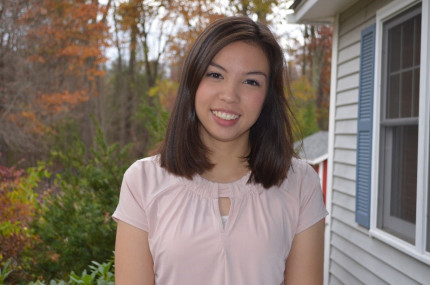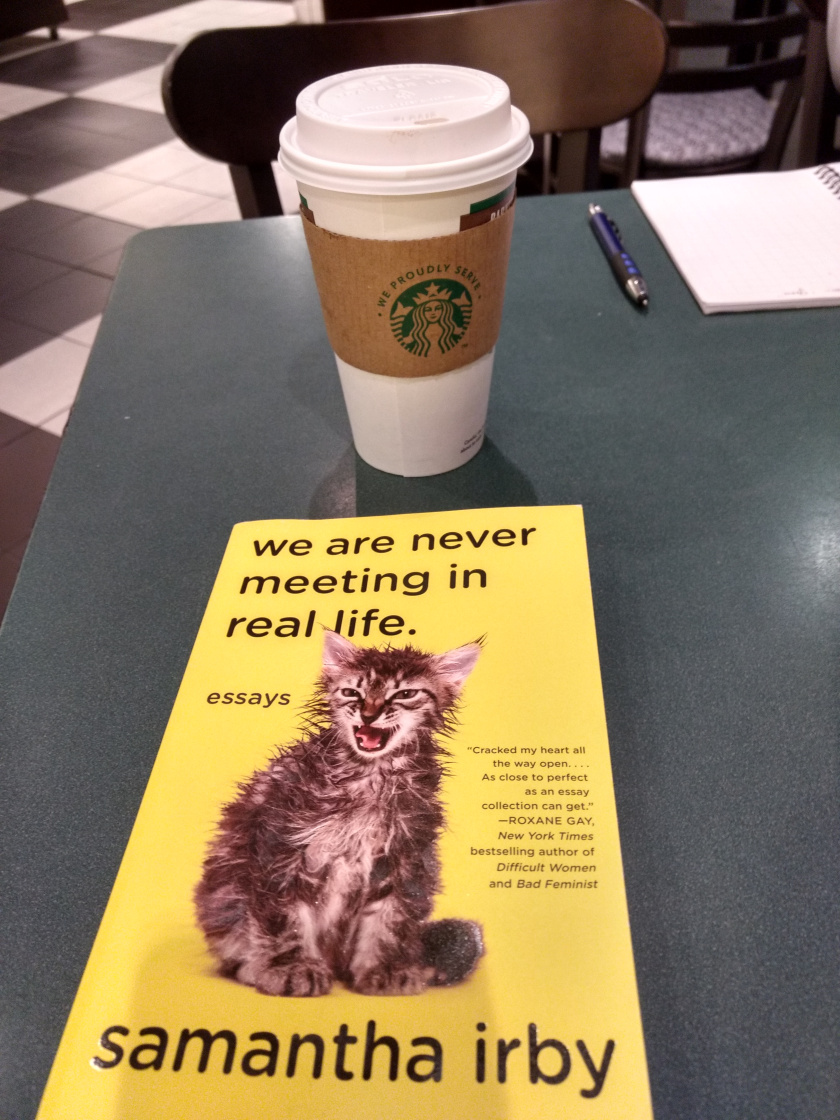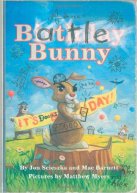Persisting and Asking for Help:
With Mae-Lynn H., Chemical Engineering major
Mae-Lynn is a sophomore, studying Chemical Engineering. She says that in high school, she really didn’t know what chemical engineering was. It was only when her dad sat down with her and went through a list of majors that her university offered that she discovered this interest. Mae-Lynn once told me that,
“I decided to major in chemical engineering last year because I wanted to make hairspray. I didn’t realize that involved science.”
You never know what will inspire you! From that point of inspiration, her passion has grown and she’s found more ways that chemical engineering improves and even saves lives. She says that,
“My dad always encouraged me to look into science and engineering fields, so I did. And I took an Intro to Chemical Engineering class and really liked it. I knew that I could use this degree in ways that would be beneficial to other people, so I guess that inspired me to keep working so I could do that in the end.”

Mae-Lynn is a fiercely independent young woman. For her, one of her hardest lessons was learning that it’s okay to ask for help. You don’t have to do things alone, in order to do them successfully. She says that
“I have learned that I am capable of so much if I keep on trying and never give up until I’ve accomplished what I want. I learn the most when I get a problem wrong and can find my mistake and get the right answer myself, but I’ve also learned that it’s okay to need to lean on other people for help and support sometimes, even if I like to do things by myself.”
Sometimes we have to learn from our mistakes to make progress. Mae-Lynn remembers feeling really frustrated during her first chemical engineering course.
“A lot of my homework assignments for my Intro to Chemical Engineering class were difficult. The first time I went to the TA help lab to check my answers, I got them all wrong and almost cried but … I knew that I could figure out what I was doing wrong, so I kept looking at examples in the textbook and asking my peers in the lab for help. Eventually, after a good amount of time, I was able to solve all the problems I got wrong and understand the concepts better because I decided to keep trying and not let failure stop me.”
Fortunately, she decided to persist through the challenge and ask for help. She didn’t get it immediately, but this doesn’t mean she’s not a talented engineer or won’t be successful. It just means she needed to put in some extra effort. Hard work is essential to success. For Mae-Lynn, she knows that asking for help and using her resources to find the support she needs is part of the accomplishment. She feels motivated “knowing that one day, I can be able to make a difference in the world because of all the hard work I am doing now” and “knowing that when I work hard and ask for help when I need it, I can accomplish all that I’ve set out to do. And then obviously seeing the results of my hard work” is also encouraging.
Mae-Lynn encourages all students to remember that gender and other differences shouldn’t make a difference in how we perceive each other or our abilities.
“What does matter is the way we treat each other, regardless of our differences. Although I haven’t taken very many engineering classes yet, what I have found is that we all excel at some things, and we all struggle at some things. When we use our strengths to help other people that may not be as strong in that area yet and vice versa, we are all benefited. I’ve seen that a lot in my classes. We’re all in this together and we all want to be successful, so why not help each other in the process?”
For Mae-Lynn, she was able to ask for help from her peers and teaching assistant. Study sessions and review activities are a great resource. There are lots of ways to get help such as asking more questions in class, staying in class after school or during lunch, or contacting a teacher through email to tell them if you need to schedule a time to get help. The most important part is you ask if you need assistance. Sometimes, a friend or teacher can teach us a new way of studying or explain a concept in a way we hadn’t seen it before. Other times, we can be that friend for someone else. Mae-Lynn has played both roles throughout her academic career, and I know she’s benefited from help and others have benefited from hers.
Thank you for sharing your perspective, Mae-Lynn! If you’d like to read more about professionals in engineering careers, check out our role model page.
Discussion starters:
What are you good at helping a friend with?
What challenges have you persisted through? What was hard to learn?
What are your strengths? Name a strength of your friends in the room.





